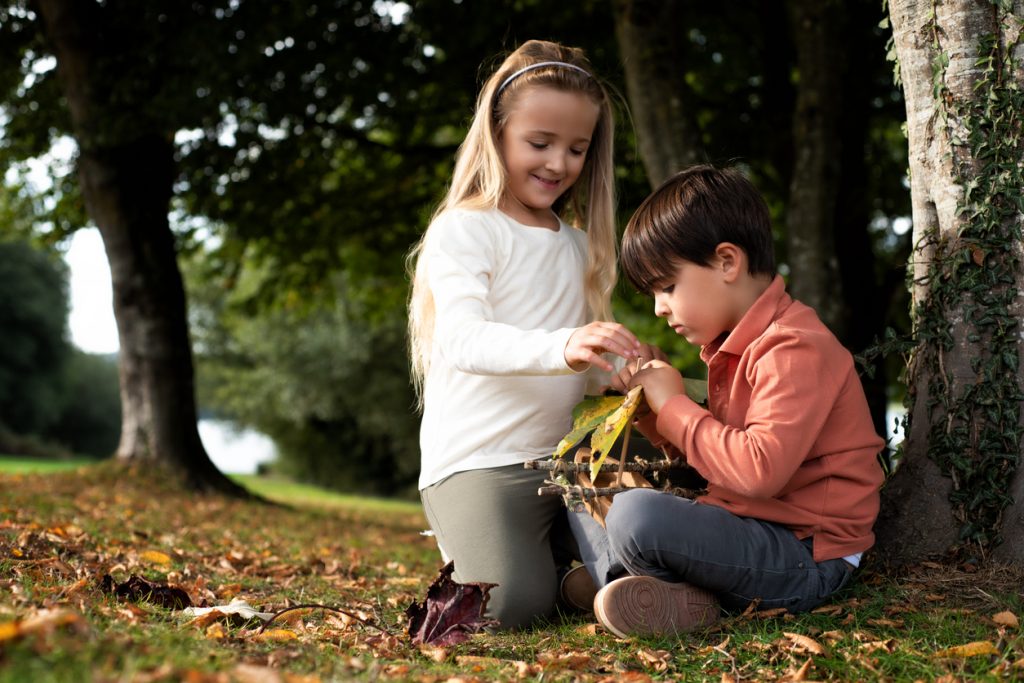13 French Parenting Techniques



As we all know, there’s no perfect way to be a parent and there are many different parenting styles to chose from.
Although there are many different techniques that you can come across that could work for your family, today we will be discussing some French parenting techniques. These techniques are considered to be a “non-nonsense” type of parenting style that is full of love and appreciation.
These French parenting techniques may not be the perfect way to raise a child, but it is definitely a parenting style that we can all learn a few things from.
Let your children do difficult things

Children love to explore and try new things. One of the best thing that you can let your child do is to let them discover new things on their own (or at least with some parental supervision). In general, French parents focuses a lot on treating children like “adults-in-training” rather than just children who need constant guidance and interference.
According to the American writer, Pamela Druckerman, an American mother who lived in France and noted the differences in parenting styles in her book Bringing up Bébé, the French encourage autonomy. French parenting focuses on letting their children feel confident and capable of doing things for themselves. This concept helps children mature a bit faster as they can practice new things and make mistakes while they are young.
Of course, you can mix a batch of chocolate chip cookies dough much faster than your children – you’ve had a lot of practice. But, if you’re taking over and doing things the faster way, this won’t encourage your children to learn for themselves. Children are capable of learning to do difficult things, but they may need to be shown extra patience.
Teach your children to sleep well from an early age
French babies don’t learn to sleep through the night just by nature – instead, they are taught.
In order for parents to avoid exhaustion, especially as new parents adjusting to their new stage in life with children, they need proper sleep (and so does their baby!). French parents focus on something called “the pause.” The pause is quite literally a pause. When babies cry during their sleep, you need to allow them to pause and let them attempt to self soothe before you rush to the rescue.
All humans have different sleep stages and this is no different for children. When infants are put to sleep, they do not instantly fall into a deep sleep. In fact, they wake up multiple times for very brief moments. Just as you may “wake up” to toss and turn a few times at the beginning of your sleep cycle, infants “wake up” and make noises.
If you allow your infant some space to toss, turn, or make noise in their early sleep cycle, you’re giving them the chance to fall back into a deeper sleep instead of completely disrupting the sleep cycle. By learning to self soothe, children will learn to not depend on pacifiers, hugs and kisses, singing, rocking, and bottles to fall asleep and stay asleep.
Teach them to say “hello”

In the French culture, children are not granted a “pass” on saying hello to everyone in the room. Just because they are shy or young does not mean that they are any less of a person. Children are supposed to acknowledge everyone’s existence and say hello to adults, teens, and other children alike. Adults would not get a “pass” on greeting others, so they do not teach children that it’s acceptable to avoid greetings only to unlearn that behavior as they grow.
A polite hello (or bonjour) is a major part of the French culture. In social settings and business settings alike, the lack of a greeting is seen as rude. Even when you enter a shop, it’s very normal to greet the workers with a friendly hello and unfriendly if you stay silent.
Learning these social manners at a young age will benefit children throughout their whole life. This is also a great way for children to develop self-confidence from a young age. A small greeting goes a long way.
Encourage them to be resilient
Children are going to encounter some difficult experiences in life, whether they want to or not. The fact is, some rough experiences are a part of life and the best thing to do in these situations is to learn from them.
French parents understand that although it may be unpleasant, going to the doctor, visiting the dentist, getting flu shots, experiencing failure, etc. are a part of life. In France, you won’t find any doctors or dentists saying “sorry” for the slight discomfort because they want children to understand that they cannot avoid certain things. As children learn to deal with hurt, they grow into stronger and more resilient humans.
In the same sense, failure is an unpleasant experience. However, the French understand that it is going to happen, and you need to let it happen. A failed opportunity is one of the best learning opportunities that any child can have! At the same time, your children will also learn great problem-solving skills.
Feed your children the same thing that the adults are eating.

The French take their food very seriously, and children are no exception to this standard.
French children are expected to eat the same thing that adults are eating. It is not a common practice to find adults cooking their children completely separate meals like pizza, chicken nuggets, or pasta. All members of the family typically eat the same meal and children enjoy their meal in smaller quantities.
Although children may have their preferences of food, they are still expected to eat what everyone else at the table is eating. This includes traditional French dishes that you might think are for a more developed pallet like dried sausages, foie gras, shrimp, tartare, different types of vegetables, and of course cheese.
Structure mealtimes
The French typically don’t have too much trouble with their children not wanting to eat during mealtimes. This is because the French don’t encourage snacking on a regular basis. For children, there is one snack time (le goûter) and 3 meals per day.
This tactic encourages children to wait for their meals and develop a healthy dose of hunger, so they will be able to eat their meals at structured times. This also helps children develop patience and train their stomachs to not be dependent on food to regulate their emotions/moods for instant gratification. Instead of offering snacks to children during a slight inconvenience, French children taught to wait.
Avoid over-praising your children
Americans have earned themselves a notorious reputation for awarding trophies for participation. Despite your opinions on this style of encouragement and parenting, the French have quite a different outlook.
While American parents have a habit of praising their child for the smallest situations, French parents use their praises more sparingly in hopes of not creating an expectation of praise in every situation. When children are praised, they feel a great sense of confidence, pride, and happiness. They will know something that they did is exceptionally good, not just something that is expected of them. French parents like to praise children for doing something unique and extraordinary, instead throwing around praise at every turn.
Maintain your own identity after having children
In the French culture, parents still maintain their interests, dedication to fashion, and friendships after having children. Having children is a blessing and one of the most joyous things on the planet, but becoming a parent doesn’t mean that you have to lose a sense of self identity.
In some cultures, it’s very common for the parents (especially the mothers), to identify themselves only as a parent as if it is their job. Although there is nothing wrong with being a dedicated parent, some parents tend to lose time for themselves, their own interests, and their friends.
The French typically try to maintain their sense of balance in life. They love the part of their life that is being a parent, but they also love to keep up with their personal life, professional life, and goals.
Carve out time for you and your partner
Carve out sometime dedicated to you and your partner. Children learn that the parents are not only around to serve the children at every constant moment, but that they are their own people as well. This technique creates some level of distance between adults and children and shows them the importance of showing undivided attention to your other half.
Some parents are insistent upon spending every moment with their children. However, French parents make sure that they have some separate adult time away from their children. Although this may come along with some guilt of separation, it lessens the chance of burnout and stress when parenting.
Parents have their own interests, their own relationships, and need their time as adults respected and encouraged by their children. This is a very French outlook that also teaches children more independence and to respect other people’s time and boundaries.
Let your “no” mean “no”
Have you ever said “no” to your child and then decided later to change your mind due to some consistent pleading, negotiations, or tantrums? Most likely the answer here is yes. But, in the French culture, parents are much more likely to stand firm in their “no.”
When French parents say no, they mean it. Although this can be very difficult at first, it’s much better to endure tantrums and pleading for a short while instead of dealing with it for multiple years. This teaches children to respect words and instructions from adults, especially their parents and understand that not everything that they want will happen.
Let your yes mean yes, and your no mean no.
Let your child learn from trial and error
Have you ever heard of the term “helicopter” parenting? A helicopter parent is someone who “hovers” over their child (like a helicopter) and is extremely involved in different aspects of their child’s life. While French parents are typically involved and interested in their children’s lives, they are not interested in controlling it.
The French really like to see their children learn things by trial and error. This includes all the simple things in life like letting them make age appropriate decisions about their time, hobbies, and after school activities.
Respect family time
Screen time at dinner? This is something you will never see during a meal with a French family.
The absence of conversation and the presence of texting while eating is not a reality in the French world and not a habit they’re likely to adopt anytime soon. The French tend to encourage family time, especially at the dinner table where they can all have a chance to catch up about their days and have uninterrupted communication.
Encourage playtime

What is the highlight of a child’s day, sitting down in a classroom at school or letting loose during playtime? Playtime, of course!
A long school day seems like almost an eternity to little kids. Sitting still, being quiet, and being in a structured environment for almost 8 hours a day is a lot to ask for.
When it’s playtime, it’s a great idea to encourage your child to go all out and have fun. They are always full of energy and will love to burn it off, run around, and just have fun. The French believe that playtime is a great way to use energy, and at the same time it stimulates the brain and makes it easier to focus during their structured learning time.
French Parenting Style
Now you’ve had an inside look at the typical ways that French families parent. Although there are not “one size fits all” rules for parenting and every family will have their own unique takes on these techniques, this list provides you with the basics.
Interested in learning more about the French culture? Take a look at these few articles to get started:


Simple Ways to Learn a Second Language at Home
Get resources and tips to help supplement your bilingual education journey at home.
By providing your email you are signing up to receive emails from Bilingual Bebe. Privacy Policy







